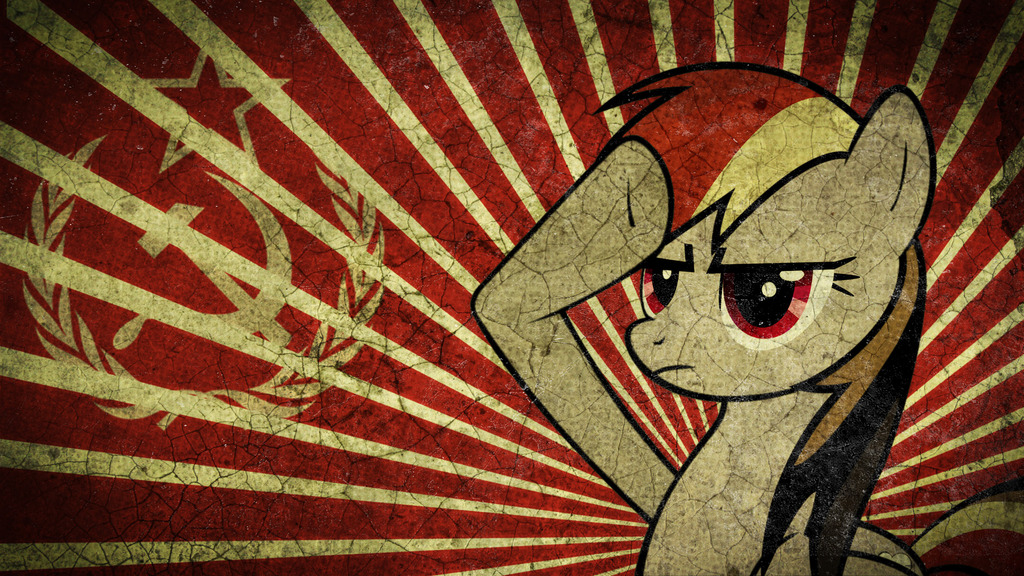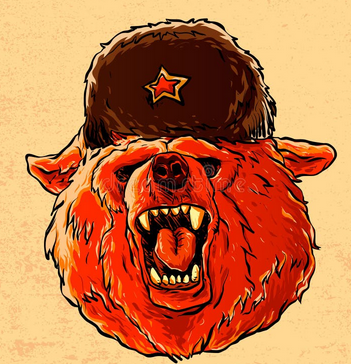No need to waste time when you see someone mention these three events together:
Famine, Great Leap Forward, Cultural Revolution.
It’s the Chinese liberal equivalent of that “TIANANMEN MASSACRE. ORGAN HARVESTING. UYGUR GENOCIDE” trope.
(Hint: It’s aimed at Mao Zedong and the CPC)
Famine
Offically referred to as 四年自然灾害, the four years of natural disasters.
四年自然灾害
I think you counted one more year, it’s three years unless you’re referring to something else. 三年困难时期 or 三年自然灾害.
Ah had a brainfart, thanks for the correction
Wait, I thought the “ruthless Chinese Communist Party” banned and silenced anything even slightly cricial of the “horrible Communist regime” but I can also just go there and talk about these things with people right on the street and buy books right in the stores and online to read about it? And apparently it’s just taught openly in the schools?
The Schrödinger argument, there is freedom or not based on what you ask.
This sounds very much like the popular rhetorical technique of demanding your opponent do impossible things in order to prove you wrong.
The only way this person’s argument can be disproven is if their opponent were to move to another fucking country.
This person is saying that China is really bad, but only mentions major events that occurred more than 40 years ago. If someone were to move to China, how would the cultural revolution happening be at all relevant to their life there? It wouldn’t.
The CR and GLP are just empty excuses anti-China people use to dismiss anything positive about China.
“Oh, China alleviated extreme poverty? Well, the cultural revolution killed people!”
“China is investing more in green energy than any other nation? But what about the Great Leap Forward? That was really bad!”
“China cancelled billions of dollars of debt to other nations? Tinyman square!”
It’s a non-sequitur argument. It wouldn’t matter if Mao or Deng killed a million billion people each, neither of them are in power now, we look at China as it is, not based on some of the worst events in its modern history that occurred half a lifetime ago.
Also, the Great Leap Forward wasn’t perfect, but it overwhelmingly succeeded, though the famine was terrible. Even during the Cultural Revolution – which I see as backwards and utopian in many respects – the trend in life expectancy rapidly increasing maintained.
Something a lot of anti-China people don’t want to understand about it. It had a lot of failures, sure, but China actively learned from them and became a stronger nation as a result. I think it is telling that the big part of the GLF that the west talks about is the famine, the natural disaster, the one part China couldn’t learn from their mistake because it was caused by climate conditions, not by direct action. They talk about it almost like China was “smited by god” for daring to be socialist. Like they deviated from the One True Correct Path of Capitalism and faced divine punishment in the form of natural disasters and “authoritarian dictators.”
There was the Four Pests Campaign contributing to it, though that impact is overstated.
It’s looked at with hindsight. At the time sparrows weren’t thought to be a major part of the ecosystem and were thought to mostly eat seeds. We now know that they were insectivores, but only partially due to the GLF. Had any other nation at the time undergone a national pest eradication campaign, they likely would’ve targeted sparrows as well.
You are right that that was the common belief, but it was long known that ecosystems are delicate things and carrying out such a campaign without so much as a test run on a smaller portion of the country to observe the impact was irresponsible. It was a case of Mao’s genuine faith in the people backfiring due to not always being tempered by the “scientific” part of “scientific socialism”.
“Sparrows can fly,”
Yeah, test results would not be 1:1 with a wider-scale implementation, but it surely would have still shown bugs getting out of hand, even if to a lesser extent.
That’s true, their methodology was flawed as well. I get a sense that there was a sense of desperation at the time, that they felt they needed to industrialize ASAP and rushed a lot of processes instead of examining them to make sure they would work as intended.
That’s true, their methodology was flawed as well. I get a sense that there was a sense of desperation at the time, that they felt they needed to industrialize ASAP and rushed a lot of processes instead of examining them to make sure they would work as intended.
there was such a feeling, and the idea that they could double iron production in such short time (which was absurd, and something other people better informed about the economy, like zhou enlai, did insist on saying before 1958) is pretty illustrative of that
i really like mao and i agree with a lot of what he wrote, he’s probably the most important marxist for my own views after marx and lenin. but i think starting from 1956 he unfortunately kind of let idealism take too much of his views on development
First rule of the fight club: Don’t mess with the birbs.
China was “smited by god” for daring to be socialist.
You are spot-on here, this is exactly, unironically believe and hope happens again to socialist nations. During the Cold War, there were many religious people in the West who unironically believed that the Warsaw Pact was the Antichrist. And let’s not forget Adrian Zenz literally believing that he was “sent by God to punish Beijing”.
If any god believes that people should suffer for turning towards socialism, or for any reason whatsoever, they must be opposed.
Why, one could say the person in the image is engaging in… WHATABOUTISM!
What do you mean? There were famines, a cultural revolution, and a great leap forward. You’re not going to see these things now even if you visited unless the cultural revolution takes a great leap through a time machine.
The ‘if you love it so much …’ is among the worst rhetorical devices in history. It’s meaningless and intended to rile up the other person without dealing with the substance. It’s based on the faulty notion that knowledge can only come from experience. It’s also based on a lack of class and material analysis.
If you went to China today at the invitation of Jack Ma, Xi, a random lower level party worker in a city or the countryside, or a random person in the city or the countryside, your perception of China will be radically different depending on who you go with and what you do. Even if Xi invited you, the trip will be coloured by whether he’s dragging out CIA spies, ignoring Blinken’s calls, strategizing over Taiwan, or doing a tour of speeches at universities and cutting the ribbon on new hospitals.
Visiting would give you a better picture of China, but it won’t give you the full picture. That still requires studying China, which can be done anywhere. It’ll be easier of one learns Chinese but there are sources in other languages. The Qiao Collective does done good stuff, such as this conference: https://m.youtube.com/playlist?list=PLQFBO6UUfDCQoIxtdxX5dVRwl1kS9IhnV
Chinese people can be wrong and popularity doesn’t make something right. Whether they are right or wrong, their class position makes a difference. The grandchildren of someone who lost their private property under Mao is going to have been brought up with stories about how scary it all was. The grandchildren of a peasant who the party lifted out of poverty will have been brought up with different stories.
I want to mention, people whose family were dragged through the culture revolution, etc., CAN have legitimate concerns and trauma. They aren’t just wrong, things WERE scary.
My grandparents on both sides had ran away from their farmer families in their teens to join the Long March, eventually all made contributions to the Party (e.g. once, my grandma served as a spy behind Japanese lines in a village, then when she had to escape back to safer grounds, traveling outside hiding in sheds in winter, wearing just a shirt, she’d lost her baby to miscarriage). They all attained fairly high ranks, were known to have done exemplary work. During the culture revolution, they were accused of being far Right for various quite often arbitrary reasons. My grandfather’s family had been farmers who owned a few small pieces of land (5 mu), and even though he had ran away at 19 and never went back, he was deemed bourgeoisie no matter what he’d accomplished. They locked him in a dark cow shed for 2 years, with handcuffs so tight the scars went to his wristbone, and his kids were allowed to visit once per month. My other grandparents had similar stories. Some years later, all of them were released, reinstated. Some received formal apologies from the Party.
My parents grew up during the Culture revolution. They witnessed their parents in various stages of lock up, but were still full of fervor, voluntarily went to the rural villages among the first wave of educated youth following Mao’s call, and neither were granted party affiliation due to “tainted family background.” Years later, this continued to pop in random ways, subverting their career trajectory. This was through to the end of the 80s to early 90s.
My grandparents remained loyal to the Party until they died. They forgave the bad stuff. But if they didn’t, if other members of my family had differing thoughts and feelings as result, those are a legitimate response to what had happened. They’re part of the complex history of new China. There are people who are alive now who still have memories. Sometimes, when the repression gets higher, even for seemingly legitimate reasons, some people have ptsd.
The CPC isn’t an angel, and it made mistakes and people got hurt. The difference is, if we want to discuss material conditions, we should probably focus on: has the CPC changed since that time? Has it improved the lot of the Chinese people? Does it clearly demonstrate that it intends to continue to serve the interests of the people, promote equality and common prosperity and all the good things? So long as these remain true, the CPC is worthy to be supported, and held to high account. And not by pretending terrible things didn’t happen either, or that 60 years is all that long ago and everyone should all be fine now.
Thank you for sharing your family story. I didn’t mean to suggest that we should dismiss the stories of Chinese people as wrong just because they don’t conform to an idealist history. I don’t think that you think I said this—I just wanted to reiterate that and support your caveat for anyone else reading.
The broader problem is with techniques that are used to shut down westerners from praising China just because a Chinese person has a different story (you didn’t do this). The person trying to shut down a pro-China narrative may dishonestly rely on (1) the relative rarity of westerners having visited China and (2) the pro-China westerner’s anti-racism. The west is usually only open to ‘China experts’ if they’re negative about China. The same people who accept that kind of narrative are often the same people who tell the pro-China westerners that they can’t be right because a Chinese person said XYZ.
Thanks again for your family story. I can’t imagine forgiving my government for doing anything close to that! Can I ask (feel free to say no): do these kinds of stories make it into Chinese fiction/drama, etc? Or do people dislike talking about it, either because it’s traumatic, taboo, etc?
Haha, exactly, I agree with your message and how it was worded :) I was just adding some nuance.
As a non-CPC-hating Chinese American living in the West, I’m fairly aware of how these tactic are used, alas. The thing is, there is a kernel of truth there–even when distorted and used for dishonest purposes to smear the CPC–such that to dismiss it altogether, would make one’s counterargument ring false as well. This kernel of truth lies behind anti-CPC sentiments within China itself, along with Chinese liberals yearning to live in capitalistic freedom, with naive people imagining the West is a utopia, etc etc. I think it’s good to acknowledge it where possible, in its historic context.
As for how these stories are depicted in China, things were fairly repressed up til the 90s, then increasingly discussed, the history taught, scholarly articles written, etc. I can’t speak for much beyond that, as I do not live in China, though I get a window into it due to being bilingual via Chinese media and social media. To go by all the recent pop culture dramas and movies, it’s not a time that most people want to dwell upon. Both far away in the past, and yet not quite far away enough for completely open dissection.
Exactly.
The conversations around these subjects get simplified to a fault, even among communists. The GPCR was a huge complex movement composed of several events and initiatives, with a billion people participating, and several factions vying for dominance in both violent and non-violent ways. The full scope will only continue to be recognized in hindsight.
Thank you for typing this out.
I’ve read quite a few aspects of the Culture revolution are seen as a shameful piece of history by modern Chinese. Would you say this is generally true? I’ve never seen a western country confront their past in a similar way.
I’ve seen nuance in person with this, for example, a friends parents moved out of China to the US, yet they’ll still defend the party and feel insulted about the constant anti-Chinese sentiment in the US. It sounds familiar to how you described people being the victim but also not giving up on the party.
deleted by creator
think about how big china is; its a billion+ people
now imagine what mao came into post-revolution
tens of thousands of villages who where still used to feudal slavery, most without even running water nevermind electricty
they had to go village to village and force the patriarchs to stop enslaving women, this was the cultural revolution; people died, but those who disavow this never mention why they where doing it.
women had there feet bound at birth and where not allowed to leave there masters house.
Most? Before the people’s Republic, Shangai alone consumed about half of the total electricity in China!
I read this Chinese guy on Quora pointing this out, and I just loved the part where he emphasized it again like “HALF.”
Anyone know the Mandarin for ‘gusano fuckbag’? That’s deffo the vibes I’m getting here.
汉奸 - traitor, usually meant Han ethnic traitors who helped the Japanese in ww2 卖国贼 - those that sell out their homeland to imperialists
Nowadays there are labels for liberals, but it’s one that they wear with pride 公知 - “public intellectuals”
An actual chinese person calling it “The Great Chinese Famine” sounds quite suspicious regarding their intentions, much like tinyman massacre. That’s not what they call it, probably because despite the x approaching infinity estimates by western chucklefucks, it wasn’t even the worst famine of the century. (It sure as shit was the last though)
Of course they brought up the cultural revolution in the same breath as a famine. There were mistakes to be sure, but there was no intention to divide the people in such a way. Not to mention, these mistakes were learned from. As opposed to liberal regimes, which only learn from their mistake of not suppressing leftist movement enough to correct that. All else is a farce with them.
Guy’s telling us to live in China; fool, don’t threaten me with a good time.
What was the worst famine that century?
Incidentally, the name they used is a common one for the event in English, though so is “CCP”
I’m not sure but off the top of my head the Qing famine of 1907 claimed ~25 million lives. You’re right on the CCP part, I change it in my head every time so I didn’t even catch that.
Sounds like typical r/china post.
TBH I don’t really understand why OP in the picture is focusing so much on stuff that happened over 60 years ago in China. Like yes the events are real, but relatively few people are alive today who lived through them. They also enjoy hindsight, and the CPC today recognizes the excesses under the cultural revolution (even under Deng already). But I don’t really see how it’s relevant what the average Chinese person thinks of those events. They didn’t live through them and they don’t really inform the CPC’s politics in this day since they’ve distanced themselves from the cultural revolution and leap forward. It would be like asking me what I think of the hippy movement, idk bro. I’m sure some hippies were serial killers too.
I take issue that “countless” people died during these three events. First of all because the “great” famine (lmao it was nothing compared to what famines happened in China pre-CPC) was the last one ever recorded in China and was absolutely natural. South China had always been less arable than the North China plains and famines were common there, especially if the Yangtze flooded; there was no will to actually kill people, at most detractors point to the fact that it was a combination of both natural events and “mismanagement of land” if they’re actually being good faith. Except it wasn’t mismanagement of land, it was a radically new system like happened in the USSR that disrupted production in the early days. And then production stabilized, and no more famines EVER. But they never talk about that.
The deaths in the GPCR and leap forward are greatly exagerated and like I said, the CPC recognizes where they went wrong and where there were excesses. I should also note most of the excesses during the GPCR were committed by common people, with the CPC being unable to control them somehow. We could argue it was their fault for starting it and not taking into consideration that they could not reign in the excesses, but like I said, it happened over 60 years ago.
Tl dr seems like the most contrived point to make to attack China on.
Gusanos try so hard to sound like white racists. This argument sounds exactly like any you’d hear from any western anti-China dickhead. Just listing off the “bad things” that happened in China as if that proves…anything at all.
I hope these guys realise their white supremacist buddies will string them up for being Chinese, regardless of how much they kiss white ass.
deleted by creator
I’m chilling in China right now. Alot of ppl here would give this hanjian a stern talking to if not beat the shit out of them (the latter being the older generation who actually lived through the cultural revolution, stayed and saw how great the country has become).
Alot of people here are also party members. They dont wear fancy suits and drive expensive cars. They are just ordinary people, who fkn read the theory and have seen it materialised in their own hometowns. They are us.
Alas, libs will exist no matter what country you are in. The important thing to remember is they deserve to be laughed at.
Yes there was a big famine, and yes the Great Leap Forward was not handled well. But if any of that is a systemic problem of Chinese communism, we really got to ask ourselves: Why was that the last famine ever experienced in China? One would expect this to be repeated over and over. Why has life expectancy and standard of living being skyrocketing in China since then? On the other hand, if we take a look at the history of China before the communists came to power, we see famines being a regular event.
That’s a succinct and well rounded answer comrade, the benefits outweighed the losses a thousand fold, it was a traumatic event, as most breaks from the traditional capitalist grip of a country, but what was built in it’s place was definitely better, is it perfect? of course not, but it’s leagues better than capitalist “democracies”, I’ll tell you that much
Thank you for your kind words comrade.
My wife’s grandma is in her 90s, and she remembers the famines before and after the revolution. She’s not a party member, but she’ll slap your shit if you trash the Party in her presence. She said she remembers being sent to forage for food and finding dead people with their fingers missing because finger meat stays when you starve to death. She remembers how a neighbor would die and then they’d smell meat cooking and everyone knew but nobody said anything.
She also remembers when the Party brought the Revolution to her town and requisitioned all the grain to distribute it and end the famine. The Party saved her life, and she is an avid supporter of it. There’s a reason that so many of the generation of Chinese people born to the ones who experienced the famines have super patriotic names.
In summary, yes, there have been horrible famines in China, and yes, the Party’s decisions exacerbated one of the worst famines, but the Party still ended famine in a famine-ridden country and that’s why the Chinese people support the Chinese government.
People don’t take into account what was before, they just hate on Chinese government by cherry picking bad things without context.
Very similar to not understanding which state Russia was before Putin and playing stupid why Russians are supporting him even with all the problems he brings.
Very similar to not understanding which state Russia was before Putin and playing stupid why Russians are supporting him even with all the problems he brings.
Can you elaborate what exactly you’re referring to here? Are you talking about the 1990s?














